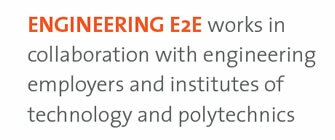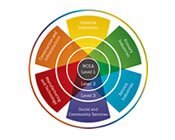The Engineering E2E Programme is responding to anticipated shortages of engineers
The New Zealand Government has set a goal of increasing engineering graduates to 500 per annum from 2017. This goal was set in response to research produced by the Institution of Professional Engineers New Zealand (IPENZ).
This research forecasts future shortages of engineers. We particularly need to increase graduates with the following:
- Diploma of Engineering (Level 6)
- Bachelor of Engineering Technology (Level 7)
We also want to increase numbers of professional engineers (Level 8).
The Government has responded with increased funding, and the Engineering E2E Programme
In the Government's Budget 2012 it allocated $42 million over four years (8.8% funding rate increase). In Budget 2013 it allocated a further $9.34 million (2% funding rate increase).
This funding will:
- boost selected engineering courses
- maintain quality of provision
- ensure providers have incentives to increase the number of graduates
|
Demand estimates from the NEEP Project Governing Group: |
||||
|
Qualification type |
Actual qualification |
Estimated annual needs for: |
% growth |
|
|
Business as usual |
Innovation-led economy |
|||
|
Level 6 Engineering Technicians |
270 |
500 |
750 |
85–178% |
|
Level 7 Engineering Technologists |
180 |
400 |
600 |
120–233% |
|
Level 8 Professional Engineers |
1,050 |
1,100 |
1,400 |
5–33% |
|
TOTAL |
1,500 |
2,000 |
2,750 |
33–83% |
Read more about IPENZ research: The National Engineering Education Plan (2010).
The Group considers that the proportions of engineers with qualifications at levels 6, 7 and 8 indicated in the 2010 NEEP report are still valid. The process to determine the figures was a robust one and without any more relevant recent data it is difficult to update the figures at this stage. However, the Group believes that chasing the OECD average is a worthwhile goal and this will mean an increase in engineers at all levels will be required, though agreed that there is work to do in the schooling sector to support students to achieve prerequisite subjects and also in the engineering sector to create a demand for engineering graduates. The potential social and economic benefits to New Zealand justify such effort.
Recommendations:
- Research the requirements of new disciplines to support an innovation-led economy.
- Provide clear pathways to and between the three qualifications
- Be more innovative with programmes and pathways to engineering
- There is no “right number” of engineers to provide, based on current available data, but there is consensus that the proportions of graduates are still valid.
- Different levels and qualifications of engineering need to be understood better, particularly Level 6 and 7.
- Quantify and determine how best to fill the leadership vacuum currently being experienced in the sector.
- Be aspirational and focus on a target, which will support an innovation led economy, rather than the status quo.
 |
 |
 |
||
 |
||||
 |
||||
 |




